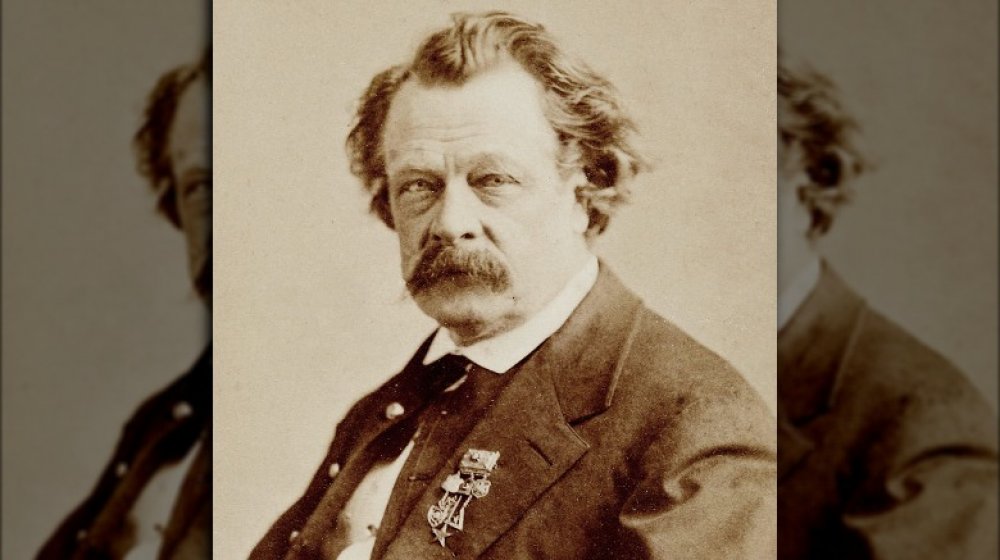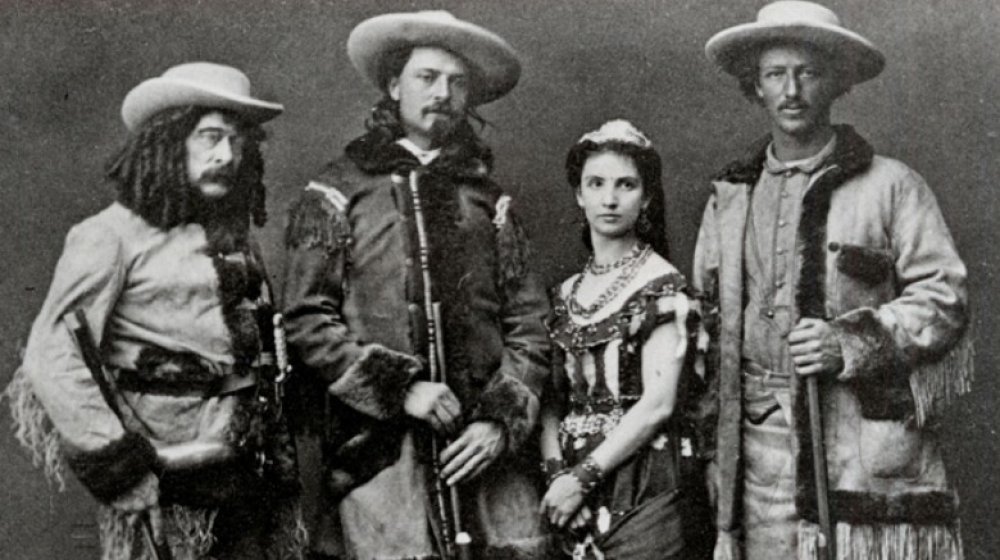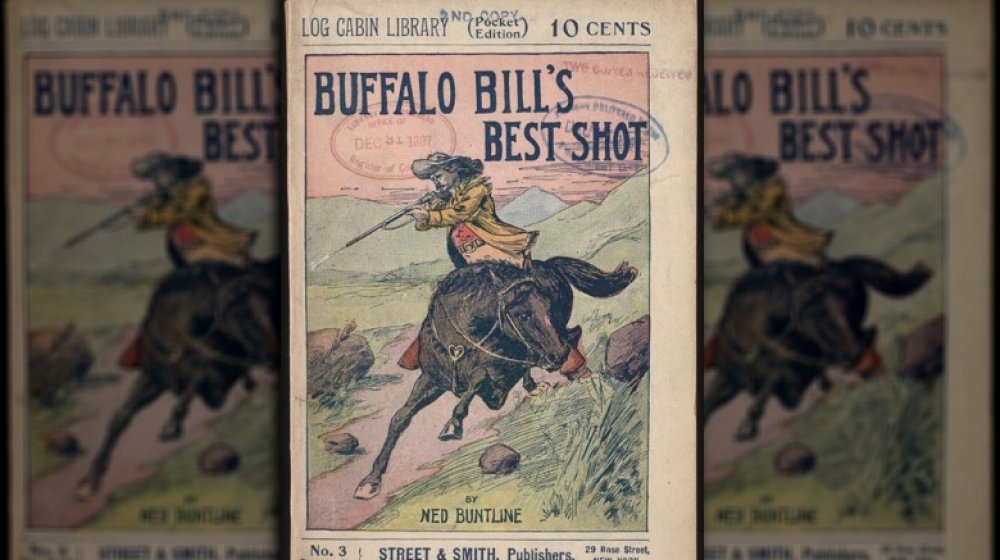The Truth About Dime Novelist Ned Buntline
Ernest Hemingway was known for writing manly tales of manly adventure in a manly fashion, including large animals shot with large rifles and large fish caught with, well, fishing poles. Overcompensating? Maybe. After all, isn't writing kind of — not manly? ("I'm a writer." "Anything I've read?" "Only if you're looking over my shoulder.") What's manly about sitting at a typewriter? (Then. Now it's just eccentric.) The big piece of advice to would-be writers (and we aren't necessarily recommending this. At all) is "write what you know." There are some huge flaws in that — presumably Agatha Christie never actually killed anybody as preparation for Hercule Poirot solving a murder. Yet all of the above applies to one of the most prolific authors in America's history, Edward Zane Carroll Judson, who wrote more than 400 novels (Historynet suggests there might have been as many as 600), some songs (including the delightfully titled "The Philadelphia Girl's Lament!" which included the exclamation point) and a play, all under the name Ned Buntline.
If he's known for anything at all, it's as more or less the father of the dime novel in America. If sales are any measure of success, Judson/Buntline was very successful indeed. He wrote about what he knew, at first — seagoing tales, perhaps inspired by his service in the Navy as a young man (a "buntline" is a kind of knot used on ships).
Buntline (left) wrote for and appeared on stage with Buffalo Bill Cody (second from left)
Eventually he discovered where the real money was: the Wild West. Buntline cranked out short novels filled with violence, drama, melodrama, even romance. The output was put out inexpensively — literally 10 cents a copy. They provided cheap, thrilling, fast-paced entertainment that was accessible to anyone with any level of literacy.
Perhaps his greatest contribution to 19th Century pop culture was the creation of Buffalo Bill Cody as a matinee idol of sorts. Cody had something of a reputation as a scout and hunting guide, but it was Buntline who gave him a taste for the roar of the crowds. Ned crafted a play, Scouts of the Prairie, based extremely loosely on Cody's adventures out west. By all accounts the play stunk on ice, but Buntline, who was also in the cast, quickly realized that the show flew when Cody and the other plainsmen started doing improv, telling their own stories and tall tales in their own way, in their own words. The show turned into a hit, says the Buffalo Bill Center of the West. Cody struck out on his own, and the Western was well and truly born.
Making a fortune, 10 cents at a time
One thing Buntline could write about with some authority from personal experience was hanging. He'd been arrested after killing a man in a duel (Buntline was paying too much attention to the other man's teenaged wife). As the South Florida Sun Sentinel tells the story, the victim's brother showed up in court to take a shot at Ned, who jumped out a window and ran. He was apprehended, but not by the police — it was a mob, bent on lynching him. As they were hoisting him up by rope, the acting mayor cut him down.
He started magazines and newspapers, often ending in failure. He married repeatedly — at least nine in all — and not always divorcing first. That propensity led to a spirited legal fight after his death in 1886, with three different women claiming to be his wife, all staking a claim to his Civil War pension. (The issue wasn't settled until 1908, says Historynet.)
It's true that he served in the Union army during that war, and even rose to the rank of sergeant. But that was before he received a dishonorable discharge for drunkenness in 1864. (He liked to call himself "Colonel" ever after.) He often gave temperance lectures later in his life, and was often drunk as he did so. He was just 65 years old (or so) when he died.


